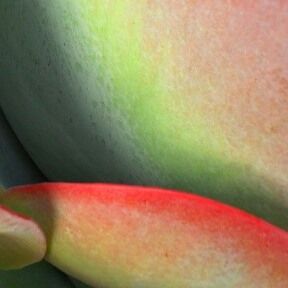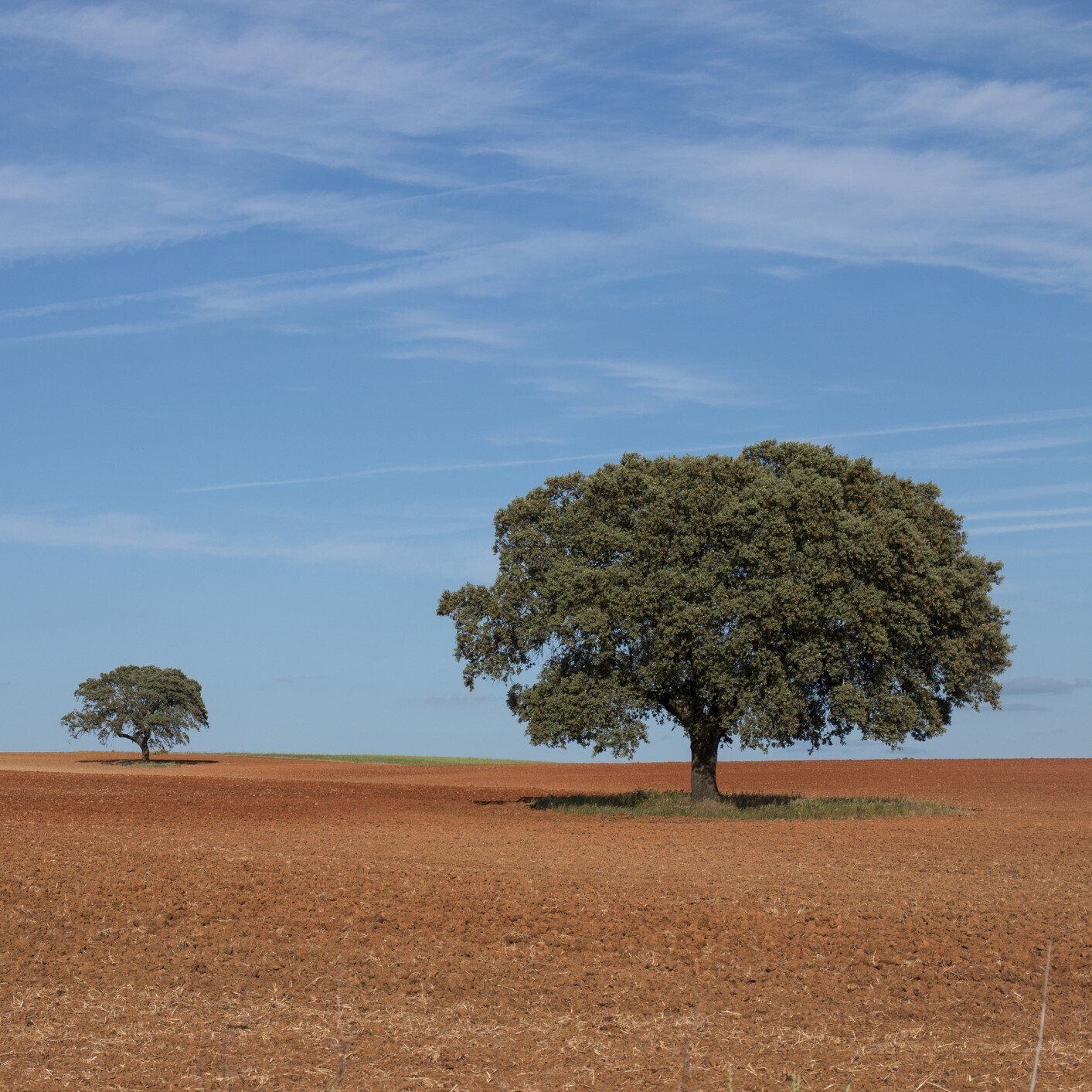
Quercus ilex rotundifolia
| Quantity | Price per item | Discount |
| 5 plants | €6,57 | 19% off |
Quercus rotundifolia, the holm oak or ballota oak, is an evergreen oak native to the western mediterranean region, the majority of trees are growing on the Iberian Peninsula with minor populations in Northwest Africa. This subspecies is an important part of an existing and ancient agroforestry system that is locally dominate in many areas of southern Portugal and Spain.
It is a tree that can reach 20–25 meters in height in exceptional cases, but it is more common to see trees that are 14-15 m tall and on average do not exceed 5-8 m, much depends on the soil they have to grow in. Quercus ilex rotundifolia is an excellent shade tree and an essential resource for birds and insects.
It is a highly adaptable species recommended for afforestation in the hottest and driest regions of the Portugal. It has the ability to persist as a forest in poor soils (stony and rocky soils) and harsh climates. In doing this, it provides organic matter in depleted soils, and the deeply developed and expansive root system protects the soil against erosion. The holm oak tree retains the ability to sprout from the roots throughout its life and, until it reaches 200–300 years of age, it has the ability to sprout from the stump. This trait allows recovery after strong disturbances such as fires and makes it suitable for creating firebreaks. Montados (dehesa in Spain), is an agrosylvopastoral system and cultural landscape found in southern and central Spain and southern Portugal, often dominated by Quercus ilex rotundifolia. The use of the ballota in the creation and maintenance of Montados is considered the best way (ecologically as well as economically) to use marginal land for agriculture.
More information
The local Q. i. rotundifolia or 'Ballota' subspecies is more xerophilic than the species Quercus ilex, and is better at tolerating cold and extremes of climate. It can survive with as little as 300 mm of average annual rainfall and at the opposite extreme it lives in regions with more than 2000 mm. The plant's tolerance to dryness is exceptional, as it can withstand an average summer rainfall of only 50 mm or even years of no summer rainfall. This subspecies can withstand low average temperatures in January, ranging between -3°C and 11°C, and average temperatures in August between 14 and 28°C. In general, the holm oak resists wind well and is indifferent to the pH of the soil, they are very long-lived and trees that are over 700–800 years old are common. It grows well in both calcareous and siliceous soils, however on very acid soils, Quercus suber may be a more successful alternative to plant.
The initial growth, in the first 10 years, can be very slow, thereafter and once established it grows more rapidly, reaching its maximum growth at between 30 and 50 years of age. The flowers are an important source of pollen and nectar for bees and other insects. The acorns are very popular with wildlife and are an important part of extensive grazing systems, the pasture containing numerous trees that feed the pigs, goats and sheep. The age at which fruit/acorns start to be produced is between 8–10 years, the age for regular fruit production is 15–20 years old, but the maximum yield is when the trees are between 50–100 years old, so if you have a large area of land, it is well worth planting the ballota for future generations to enjoy.
Specialising in growing plants for dry mediterranean landscapes
We are a plant nursery in the Algarve specialising in dry mediterranean species. We propagate and grow our own stock in conditions they are likely to endure when they are planted out.
We grow plants that are adapted to the dry land conditions in Portugal and southern Spain, both mediterranean perennials and succulents.
We choose plants that require very little water and maintenance. We produce a range of dry land plants that are typical of the worlds mediterranean regions. These are available to order ready for planting in the wetter months of the year. Please order the plants you need and we’ll have them ready at the best time for planting.
To ensure your new plants adapt and establish quickly, we produce them in special anti-spiral root pruning containers and a range of fibre pots (no plastic waste) with our own tried and tested growing media.
Viveiros Jardimseco - Plantas de terra seca

Viveiros Jardimseco
Tavira, Algarve
Please note we have no retail outlet or garden centre and are not open to the public. For more information you can contact us here.
Plantas adaptadas à seca - produzimos plantas adaptadas às condições de Portugal e Sul de Espanha, tanto espécies mediterrânicas como suculentas.
Oferecemos uma gama de espécies típicas das zonas climáticas mediterrânicas em todo o mundo.
